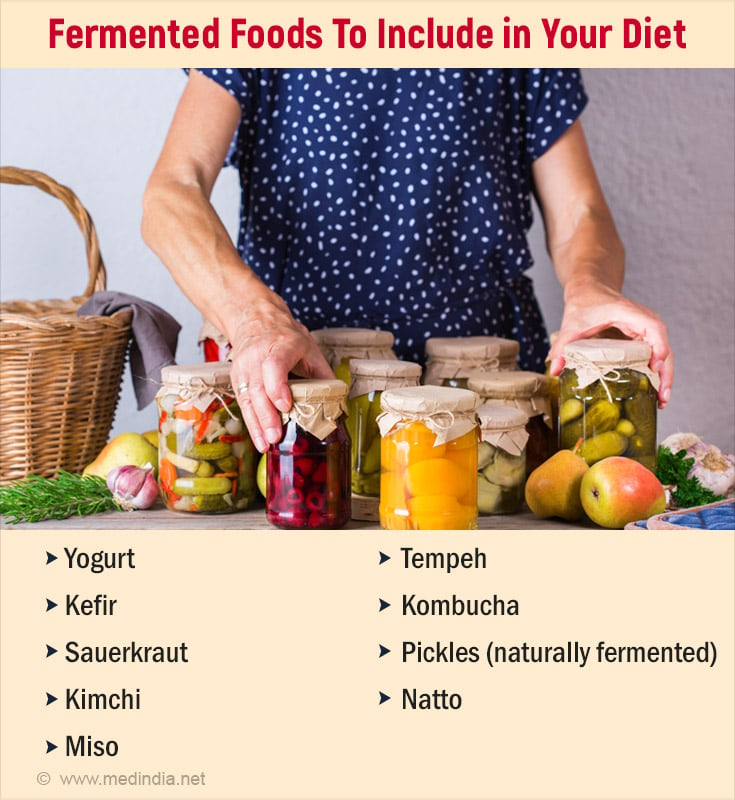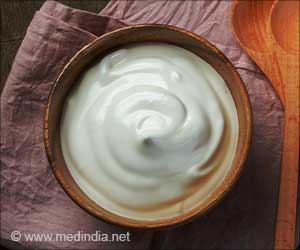- Fermented Foods, Health and the Gut Microbiome - (https://www.ncbi.nlm.nih.gov/pmc/articles/PMC9003261/)
- The Interplay between the Gut Microbiome and the Immune System in the Context of Infectious Diseases throughout Life and the Role of Nutrition in Optimizing Treatment Strategies - (https://www.ncbi.nlm.nih.gov/pmc/articles/PMC8001875/)
- Fermented Foods in the Management of Obesity: Mechanisms of Action and Future Challenges - (https://www.ncbi.nlm.nih.gov/pmc/articles/PMC9916812/)
- Effect of Fermentation on the Nutritional Quality of the Selected Vegetables and Legumes and Their Health Effects - (https://pubmed.ncbi.nlm.nih.gov/36983811/)
- The gut-brain axis: interactions between enteric microbiota, central and enteric nervous systems - (https://www.ncbi.nlm.nih.gov/pmc/articles/PMC4367209/)
About
Fermented foods are an ancient culinary tradition that is making a powerful comeback in modern diets. From kefir and kimchi to kombucha and sauerkraut, these foods are packed with beneficial bacteria and unique nutrients that can transform your health.
Did You Know?
Fermented foods were originally created to preserve food before refrigeration existed! They've been around for over 9,000 years, with some of the earliest evidence found in ancient China. #fermentedfoods
Five Compelling Reasons to Include Fermented Foods in Your Diet
Boost Gut Health
Fermented foods are rich in probiotics, which are live bacteria that support a healthy gut(1✔ ✔Trusted Source
Fermented Foods, Health and the Gut Microbiome
Go to source). Your gut houses trillions of bacteria that are crucial for digesting food, absorbing nutrients, and even supporting your immune system. Eating foods like yogurt, sauerkraut, and kefir replenishes the good bacteria in your gut, which can help with digestive issues such as bloating, gas, and constipation.
Improve Immune Function
Your gut health is closely linked to your immune system, with nearly 70% of your immune cells residing in your gut(2✔ ✔Trusted Source
The Interplay between the Gut Microbiome and the Immune System in the Context of Infectious Diseases throughout Life and the Role of Nutrition in Optimizing Treatment Strategies
Go to source). The probiotics found in fermented foods help to maintain a balanced gut microbiome, which in turn supports immune function. Studies suggest that regular consumption of fermented foods may reduce the frequency of colds and respiratory infections.
Support Weight Management
Probiotics may also play a role in weight management. Some research indicates that certain strains of probiotics found in fermented foods can influence how your body stores fat and regulates hormones related to appetite and satiety. Fermented foods can support weight management by promoting fullness and aiding digestion(3✔ ✔Trusted Source
Fermented Foods in the Management of Obesity: Mechanisms of Action and Future Challenges
Go to source).
Enhance Nutrient Absorption
Fermentation breaks down nutrients in a way that makes them easier for your body to absorb. For example, the fermentation process increases the bioavailability of vitamins, minerals, and antioxidants in foods(4✔ ✔Trusted Source
Effect of Fermentation on the Nutritional Quality of the Selected Vegetables and Legumes and Their Health Effects
Go to source). Eating fermented foods can help your body absorb more nutrients from the food you eat, especially vitamin K2, B vitamins, and omega-3 fatty acids.
Promote Mental Health
Gut health and mental health are closely connected through what's known as the "gut-brain axis"(5✔ ✔Trusted Source
The gut-brain axis: interactions between enteric microbiota, central and enteric nervous systems
Go to source). The probiotics in fermented foods have been shown to positively influence mental health by reducing symptoms of anxiety, depression, and stress. Regular consumption of fermented foods can contribute to a healthier mood and improved cognitive function.
Common Fermented Foods to Include in Your Diet
Fermented foods are versatile, delicious, and come from a variety of cultures. Here are some common fermented foods you can easily incorporate into your meals:
Yogurt
Yogurt is one of the most well-known fermented foods, made by fermenting milk with specific bacteria. It’s packed with probiotics, calcium, and protein, making it a great option for gut health and bone strength. Look for varieties labeled as containing "live and active cultures" for the best probiotic benefits.
Kefir
Kefir is a fermented dairy product similar to yogurt but with a thinner consistency. It contains a wider variety of probiotic strains than yogurt and can be consumed as a drink. Kefir is also available in non-dairy forms like coconut or water kefir for those avoiding dairy.
Sauerkraut
Sauerkraut is finely shredded cabbage that has been fermented by lactic acid bacteria. It’s rich in fiber, vitamins, and probiotics. Sauerkraut can be added to salads, sandwiches, or eaten as a side dish to give your meals a tangy boost.

Kimchi
A traditional Korean dish, kimchi is made by fermenting vegetables like cabbage and radishes with spices and seasonings. It’s not only probiotic-rich but also packed with antioxidants, fiber, and vitamins. Kimchi adds a spicy kick to meals and can be eaten on its own or as a flavorful side.
Kombucha
Kombucha is a fermented tea that has become popular for its probiotic content and fizzy texture. Made by fermenting tea with sugar and a symbiotic culture of bacteria and yeast (SCOBY), kombucha is often flavored with fruits or herbs. It’s a refreshing, low-calorie drink that supports digestion.
Tempeh
Originating from Indonesia, tempeh is made from fermented soybeans and has a firm texture, making it a popular meat substitute. It’s rich in protein, fiber, and probiotics, making it a great addition to stir-fries, salads, or sandwiches.
Miso
Miso is a traditional Japanese fermented paste made from soybeans, barley, or rice. It's used as a seasoning in soups, sauces, and marinades. Miso is not only full of probiotics but also provides essential nutrients like vitamins, minerals, and antioxidants.
Pickles
Fermented pickles, made without vinegar, are rich in probiotics due to the natural fermentation process. They are a crunchy and flavorful snack that can also be added to sandwiches or salads.
Natto
Natto is a traditional Japanese dish made from fermented soybeans. Known for its strong flavor and sticky texture, natto is rich in probiotics and vitamin K2, which is beneficial for bone health.
Incorporating these fermented foods into your diet is an easy and tasty way to boost your intake of probiotics and enhance your overall health. Try adding one or more of these to your meals each day!
Fermented foods are an excellent addition to any diet due to their numerous health benefits, from enhancing digestion and nutrient absorption to supporting your immune system and mental health. Whether you are looking to manage your weight, improve your digestion, or boost your overall well-being, adding more fermented foods to your daily meals can make a big difference.










